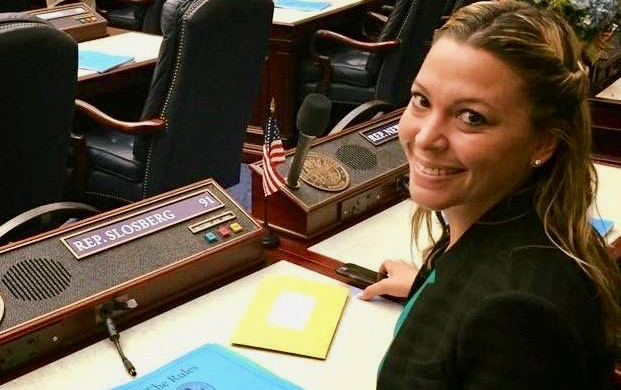A busy legislative season yielded a handful of new distracted driving laws that went into effect July 1.
Florida, Tennessee, Illinois and Virginia all saw new laws go into action at year’s midpoint. And Minnesota follows a month later.
While some distracted driving measures remain in play, most lawmakers have gone home for the year, setting up another round of debates in 2020 over handheld cell phone use, texting & driving, enforcement, “personal freedoms” and the threat of racial profiling. Almost all states have texting & driving bans, but a minority have clamped down on cell phone use. And none has barred the use of cell phones across the board, despite safety advocates’ warnings that any use of the devices remains dangerous.
In Florida, the state’s long-ridiculed texting & driving law got an update. Law officers can now pull over motorists they see texting, instead of needing another resulting offense (such as swerving or running a light). The primary enforcement upgrade had been debated for years, with significant resistance in Tallahassee. Lawmakers left several loopholes in the law, including exempting texting while at a red light or stop sign, and allowing the use of weather alerts. GPS use also is permitted. State Rep. Jackie Toledo and Emily Slosberg pushed through the texting legislation. Gov. Ron DeSantis called texting & driving “one of the worst of all driving distractions.”
Florida also took a baby step toward controlling cell phone use with a ban on use of the devices in active school zones or construction zones. That subsection goes into effect with the new year, but warnings begin in October.
In Tennessee, a hands-free law was enacted in hopes of cutting into the state’s high number of distracted driving crashes. Motorists are now barred from holding a smartphone or similar device with any part of their bodies. Fines run from $50 (first offense) to $200 (school or work zone). Three points vs. driver’s license. The new law originated with State Rep. John Holsclaw, who fought for tougher distracted driving regulations for five years. One study found Tennessee had the highest rate of distracted driving deaths in the nation.
In Illinois, state Rep. John D’Amico’s plan to make all offenses relating to electronic communications devices moving violations went into effect July 1. Previously, first offenders were spared black marks on their driving records — and reporting to insurance companies. Fines remain the same (per amendment). This change in the law dates back to the 2018 legislative session. The 2019 legislature sent to the governor a plan to crack down on texting motorists who do damage to other people.
In Virginia, handheld cell phone use in a road construction zone became illegal at midyear. Mandatory fine of $250. Gov. Ralph Northam amended the originating bill to include an overall handheld cell phone ban, but those changes were rejected by lawmakers. Delegate Chris Collins says he’ll try again for a hands-free law in 2020, if re-elected.
In Minnesota, a major public-safety campaign is under way to warn motorists of the new handheld cell phone law taking effect Aug. 1. “Anybody who lives in Minnesota will have to work hard not to know about this,” said the director of the Department of Public Safety’s Office of Traffic Safety. Hands-free devices will be required to make phone calls while on the road. Limited hands-free operation is permitted for GPS and the playing of music. Fines range from $50 (first offense) to $275, plus fees. State Rep. Frank Hornstein pushed through the bill. Gov. Tim Walz offered families of those lost to distracted drivers “the deepest apologies that it took this long.”


